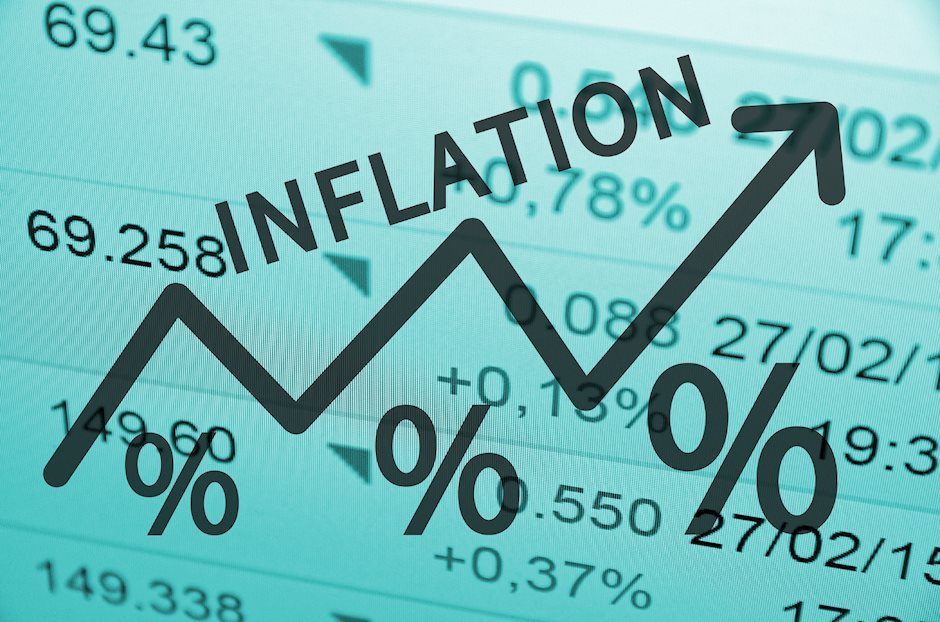Focus on Euro area inflation today and tomorrow

In focus today
In the euro area, focus turns to inflation data for Germany and Spain which we receive ahead of the euro area data tomorrow. We expect euro area headline inflation to rise to 2.3% y/y from 2.0% y/y in October. The increase is expected mainly due to base effects on core inflation and especially energy inflation, while the monthly price increases are expected to show a continuation of the disinflationary process. We expect core inflation to increase to 2.8% y/y from 2.7% y/y. However, the monthly price increases are projected to continue below what is compatible with the 2% target annualized.
ECB's Chief Economist Lane will be speaking today.
Overnight we will receive Tokyo CPI out of Japan. Consensus expects inflation to have picked up from 1.8% in October to 2.1% in November.
Economic and market news
What happened overnight
In the US, sources in the US government said that President Biden are readying a 725m USD military aid package for Ukraine, as he seeks to bolster Ukraine before leaving office in January.
In Mexico, President Sheinbaum and Economy minister Ebrard said that Mexico would retaliate if US President-elect Trump followed through with his proposed 25% cross border tariffs. According to calculations from the Mexican government this could lead to the end of 400,000 jobs in the US and push to inflation, they warned. For example, 88% of pick-up trucks sold in the US are made in Mexico and the estimate from the Mexican government is that a tariff would push up the prices of these vehicles by 3,000 USD on average.
What happened yesterday
In the US, October Core PCE inflation was slightly below expectations at 2.1% (Consensus: 2.2%), while core services inflation remained unchanged (2.6%). Q3 GDP remained unchanged in the second release (2.8%). The market reaction was rather muted after the release.
In the euro area, ECB's Schnabel, spoke about monetary policy and sounded quite hawkish stating that the ECB should cut interest rates only gradually, and not lower rates to a level that stimulates growth. Schnabel said that she does not see a significant risk of undershooting inflation adding to the debate that has been a theme from several ECB members recently. These comments are more hawkish than we have heard from several ECB members in recent weeks, however, it is classic Schnabel to position herself in that way.
In France, the French government continues to be in risk of collapse as the negotiations about a new budget continues. French Prime Minister Barnier will lose a non-confidence vote if the budget is not passed in government. The government is negotiating with Marine Le Pen's right-wing party Rassemblement National. The budget is presented to lower France's public debt problems by increasing taxes and lowering government spending, which the French left- and right wing are opposed to. The French government has said that France will meet significant market turmoil if the budget is not passed and the government falls. The spread between German and French government bonds has widened to 0.9 percentage points, the widest since 2012, while the major French stock index Cac 40 is nearing all-time lows for 2024.
Equities: Global equities were lower yesterday, with relatively broad-based declines across regions and defensive sectors outperformed. Despite this, the VIX remained very stable, and small caps outperformed. Looking at the massive amount of US macro data out yesterday, we argue that it was a mix of good and bad news, it makes it difficult to attribute the risk-off tone in equities solely to macro. In the US yesterday: Dow -0.3%, S&P 500 -0.4%, Nasdaq -0.6%, and Russell 2000 +0.1%. Asian markets are mixed this morning, with the Japanese market leading advances and Chinese markets leading declines. European and US futures are higher, led by core Europe.
FI: Markets pared ECB expectations following a string of hawkish comments by ECB's Schnabel yesterday. The pricing of cuts at the December meeting declined from 32bp to 28bp, marking a full reversal of last week's move following November PMIs. Long-end yields drifted lower across regions, with peripherals such as Italy and Spain outperforming core Europe. The US Treasury curve bull flattened with the back of the curve down some 4bp by the close. Throughout this week, markets have added a bit to expectations for the December FOMC meeting with 17bp worth of cuts currently being discounted. Next week's NFP report could be the deciding factor.
FX: The USD came under pressure during yesterday's session in a move sending EUR/USD a full figure higher - although this morning the cross has erased part of yesterday's gains now trading around the 1.0560 level. Both EUR/NOK and EUR/SEK have been fairly rangebound over the last 24 hours while USD/JPY managed to set new lows yesterday before rebounding slightly overnight.
Author

Danske Research Team
Danske Bank A/S
Research is part of Danske Bank Markets and operate as Danske Bank's research department. The department monitors financial markets and economic trends of relevance to Danske Bank Markets and its clients.

















